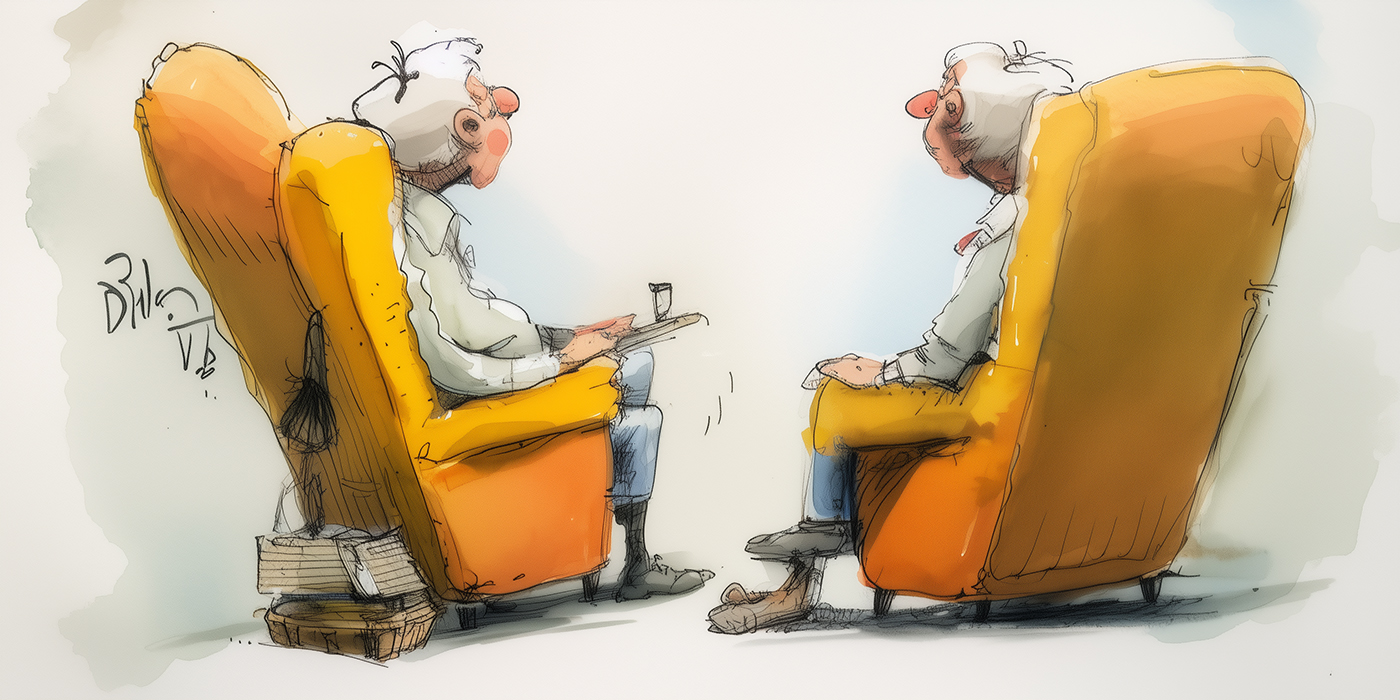“I’m in a serious, monogamous relationship. I love him, and I’m certain that we’re going to get married. Why doesn’t SA support sex in this type of committed relationship? I’m able to stay present during sex, and it’s about connection, not escape. I don’t have religious convictions about waiting until marriage. Plus, it’s not as if I’m a virgin! Yet sex outside of marriage is not allowed within our sobriety definition. While everyone is free to do exactly as he or she wishes, we are not considered sober if we have sex with anyone other than a spouse. This seems unfair to the single sexaholic!”
As a single sexaholic woman with other single friends in recovery, I’ve heard arguments like the ones above more than once. Early in recovery, before I began to experience lasting sobriety and progressive victory over lust, I would say things like that myself. But my sponsor would always tell me to take a year off from dating to concentrate on sobriety and Step work, and a year ago I finally took her advice. Today I’m experiencing a new freedom as a single woman in sobriety. Now I can embrace SA’s sobriety definition in its entirety: “Any form of sex with one’s self or with partners other than the spouse is progressively addictive and destructive” (SA 202). This means that married sexaholics can have sex with a husband or wife, but for the single sexaholic it means “freedom from sex of any kind” (192), that is, no sex until marriage. Now that I accept this definition, I would like to try to articulate why I believe it applies to single sexaholics as well as those who are married.
1) Sex in a dating relationship threatens my objectivity. As I’m getting to know a potential husband, it is very hard (impossible, really!) for me to be honest and objective when I am being sexual. Sex while dating clouds my thinking. When I date, I want to be able to see my partner for who he truly is and make clear-headed decisions about our future.
2) Sex is meant to reflect an intimate bond, not create one. Sex introduced too early in a relationship can create a false sense of intimacy, rather than reflect the real intimacy cultivated through emotional (not sexual) connection.
3) By choosing not to have sex until I’m married, I demonstrate to myself (and remind my partner) that sex is truly optional. The best way I can remind myself that I don’t have to have sex is by not having sex!
4) Accepting SA’s sobriety definition takes the pressure off me to decide when I am “ready” to be sexual with my partner. I’ve often heard in the program: “My own best thinking got me here!” Looking at the track record of my “best thinking” (or self-will), it makes sense for me to accept the wisdom of those who have gone before me rather than think it will be “different” for me. Even if I think I’m entering into a sexual relationship in a healthy way, I know that my disease is cunning and baffling; I can deceive myself just as easily as I could deceive others.
5) Accepting SA’s sobriety definition is an act of surrendering my self-will and letting go of old ideas. The Big Book says, “Some of us have tried to hold on to our old ideas and the result was nil until we let go absolutely” (AA 58). My old ideas about sex included the following: (a) that I could control it (when in truth, sexual addiction was having its way with me!), (b) it was an indicator of being loved and important, (c) my sexual behaviors did not affect anyone but myself, (d) intensity meant intimacy, (e) I was “different” than other people and just had a higher sex drive, and (f) waiting to have sex until I married my partner was simply unrealistic and impossible. Choosing to embrace SA’s sobriety definition challenges all of these old ideas and frees me to discover new ideas about sex and sexuality.
6) When I ignore SA’s sobriety definition, I affect other people. In the past I thought that my sexual behaviors only affected me. But now that I have a home group, a sponsor, sponsees, friends in recovery, and renewed relationships with family, other friends, and especially my Higher Power, I know that if I jeopardize my sobriety, I risk harming all of these relationships. Freedom from lust keeps me emotionally, mentally, and spiritually available for a healthy connection, and it gives me experience, strength, and hope to offer to others.
7) Accepting SA’s sobriety definition reminds me that I have no guarantees about my future and need to live in the present. Currently, I’m not married, so accepting where I am in life means living as a single person, not a married person. If I justify having sex with my partner by thinking, “I’m sure we’re going to get married anyway,” then I’m living in the future, not the present. In fact, I used this flawed logic (“We’re going to get married so it’s okay”) in my last relationship—which is now over. And also in the one before that! Two men who told me they wanted to marry me and would love me forever…and both relationships fell apart in the end.
8) I can think of many negative consequences that might result from having sex with a partner while dating, but I cannot think of any negative consequences that would result from abstinence. Negative consequences of sex outside of marriage might include: awakening lust, creating dependency, secrecy, shame, unplanned pregnancy, and fear. On the other hand, abstinence can bring self-respect, freedom from guilt and fear, and more opportunities to work my program by surrendering lust.
9) Refraining from sex while dating gives me time to keep working through the Steps with my sponsor. It also gives me time to learn about what healthy sex looks like (from listening to the experience, strength, and hope of married SAs) and to develop a plan (in conjunction with my sponsor and outside help) for introducing sex into my life in recovery, when and if I get married.
I once heard sex described as a by-product of sharing, commitment, trust, and cooperation in a partnership. I believe that the best way I can ensure that sex is unselfish is to build a foundation of sharing, trust, and cooperation with my partner, and to wait for the decisive commitment of marriage before having a sexual relationship. Marriage is no guarantee of lust-free sex (my married SA friends talk openly about that!), but I believe I will have a greater chance of sexual health—before and after marriage—if I trust the wisdom of SA literature and the experience of those who have gone before me.
Shannyn H., Nashville, TN






